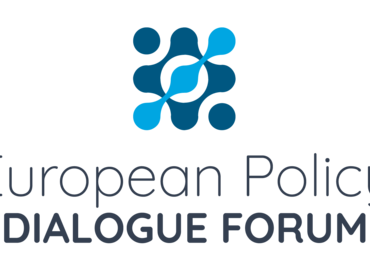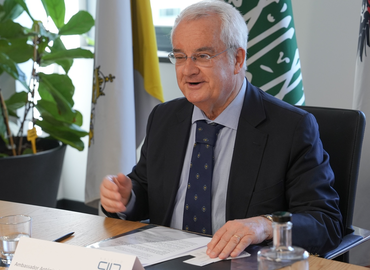The G20 Interfaith Forum and COVID-19: Our unique opportunities at this unprecedented moment
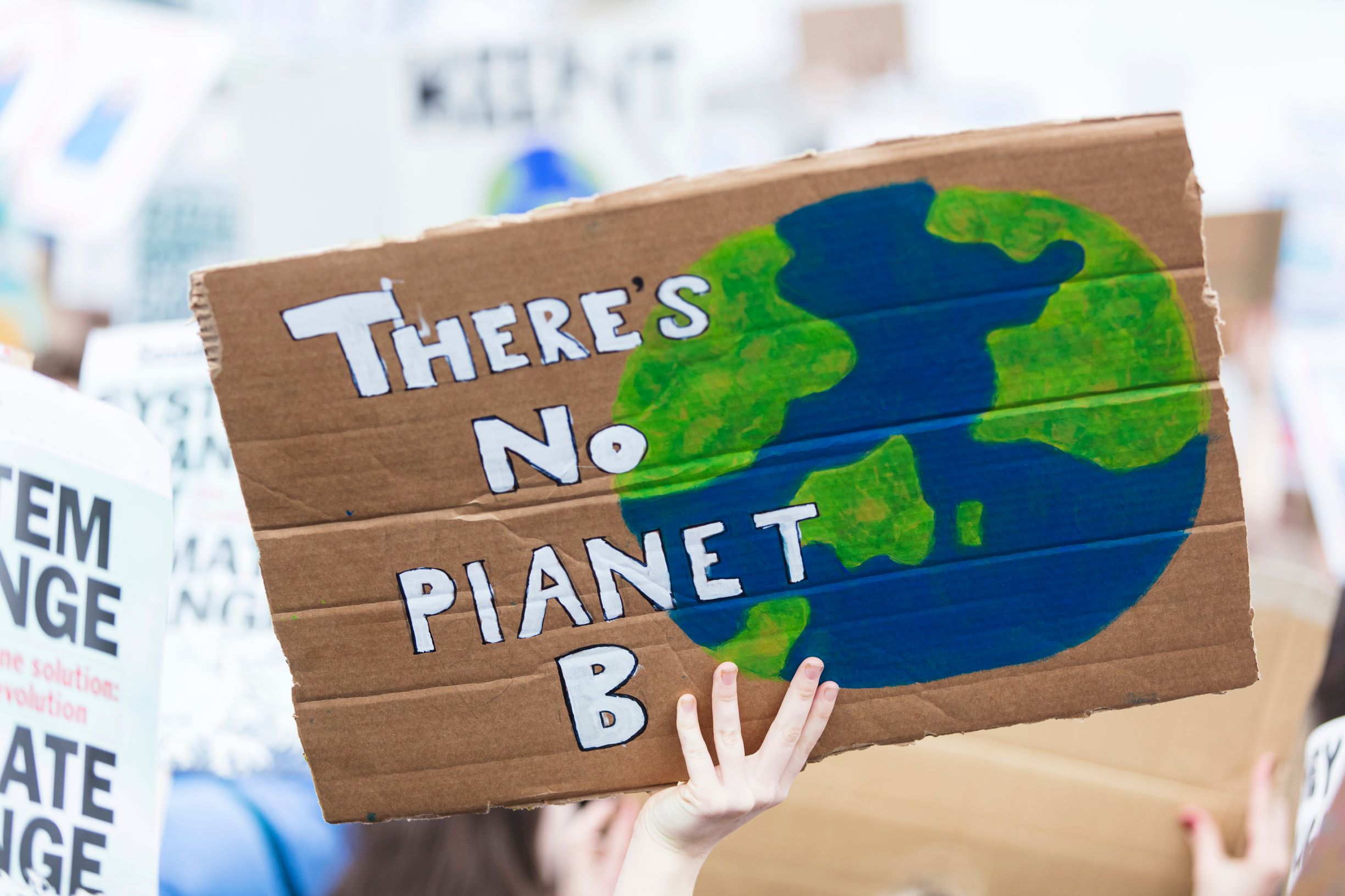
Prof. Victoria Wyszynski Thoresen is the UNESCO Chair for Education about Sustainable Lifestyles at The Collaborative Learning Centre for Sustainable Development at Inland Norway University. Specialised in curriculum development, global education and peace education, among many other things, Thoresen has worked closely with UNEP, UNESCO and other international agencies on sustainable development. As a member of the European consultation working group for the G20 Interfaith Forum, Thoresen looks at opportunities for policymakers and religious leaders during the COVID-19 pandemic.
The year 2020 has taught us how suddenly our normal day-to-day existence can become something quite unexpected. People follow news from around the globe, concerned about what tomorrow will bring.
We realise with undeniable clarity how interconnected and interdependent we all are. Globalisation and modern telecommunications have expanded our awareness of how others exist and our role in their conditions.
We tweet and Zoom with friends and family. We cry with empathy at COVID-19 induced deaths. We cringe at the thought of a second or third “wave”.
But are the leaders of our governments as well as our faith-based organizations ignoring the opportunities this unprecedented moment in history is presenting us with?
For once, the unquestioned pursuit of material goods and the competitive mentality of our age have been forced to take a brief break. Governments altered, with the stroke of a pen, what people were allowed to do.
The justification: the health and survival of the citizens within their countries. However, the challenges nations face, be they COVID-19, climate change, economic recession, or general well-being, are not restricted to national boundaries.
Modern societies are interconnected and vulnerable. War, peace, production, advertising and even consumption are global endeavors. What we do has global consequences both socially and ecologically.
Rethinking Our Priorities
This unprecedented moment in history provides humankind with the chance to rethink its priorities. We have already exceeded the carrying capacity of the globe. The average temperature continues to rise. Starvation and conflict ravage many people.
A greater appreciation of humanity’s shared identity coupled with concern for collective, as well as individual, well-being can guide us down new paths. Governments, with the support and assistance of faith-based organizations, must focus on unity and global solidarity, understanding that the progress of one group is dependent on the progress of all; the progress of one nation is dependent on the progress of all nations.
Such awareness-raising must be done on all levels: in the family, in places of worship, in schools, at workplaces, in the media and in public institutions.
Creating a Culture of Constant Learning
Certain truths are unquestionably universal and enduring. However, our understanding of them constantly changes and grows. Certain ways of living together function well. However, new challenges often call for fresh approaches.
Recognising that what we once thought was “right” may not always be so, will help us deal with the unfolding challenges of our time. A constant culture of learning, without the need to place blame or find scapegoats, contributes a flexibility that is vital to growth and progress.
To achieve this, self-confidence, humility, critical thinking, systems-thinking and cooperation need to be learned. Science and research must be supported. At this time, when governments struggle to provide subsidies to failing businesses due to lockdowns, the importance of funding and subsidies targeting research and development to combat injustice and climate change must not be overlooked.
Changing our Consumer Behavior
Consumption is hailed as the key to maintaining the global economy. Measuring economic growth remains, unfortunately, the common indicator for defining the development and success of nations. Extremes of wealth and poverty are often ignored, resulting in averages that disguise suffering and need.
Diversity succumbs to commercial norms. Large numbers of people, both young and old, suffer lifestyle related illnesses. Unconstrained material growth contributes to the destruction of natural resources.
While a circular economy is a step towards improvement, for circular economy to be effective we must not only consume differently but we must also consume less. Conscious, collaborative, sufficient consumption based on fulfilling our needs and not our greed, is essential if we are to combat climate change and achieve just development in which “no one is left behind”.
Exercising Leadership
Leaders of government, and in particular those of the G20, have been given the responsibility by their citizens to guide the world towards a future that is not overshadowed by the clouds of disease, climate change, war and hunger. Many have stepped up to the challenge of the COVID-19 pandemic.
Now, they have the opportunity to take significant steps to deal with the many pressing problems we all face. Faith-based groups can and are willing to provide encouragement and support. Let us not lose this unique moment.
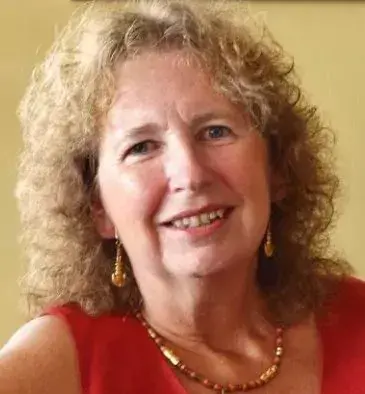
Prof. Victoria Wyszynski Thoresen holds the UNESCO Chair for Education about Sustainable Lifestyles at The Collaborative Learning Centre for Sustainable Development at Inland Norway University. The Centre promotes the development and use of research and learning methods that assist people to contribute to constructive change through the way they choose to live. Thoresen has specialized in curriculum development, global education, peace education, value-based education and consumer education. In addition to many years of experience as a teacher and teacher trainer, Thoresen has written articles and textbooks for teacher training and has functioned as an international educational consultant. As leader of PERL, The Partnership for Education and Research about Responsible Living, (a network of 140 universities in 50 countries) she has worked closely with UNEP, UNESCO and other international agencies concerned with sustainable development. Thoresen is a member of the board of the International Environment Forum, a Baha’i-inspired non-governmental organization, and has been a member of the Norwegian Baha’i National Assembly.
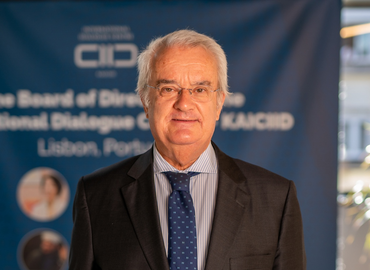
Imagine Europe without the European Convention on Human Rights. No Court in Strasbourg to…

